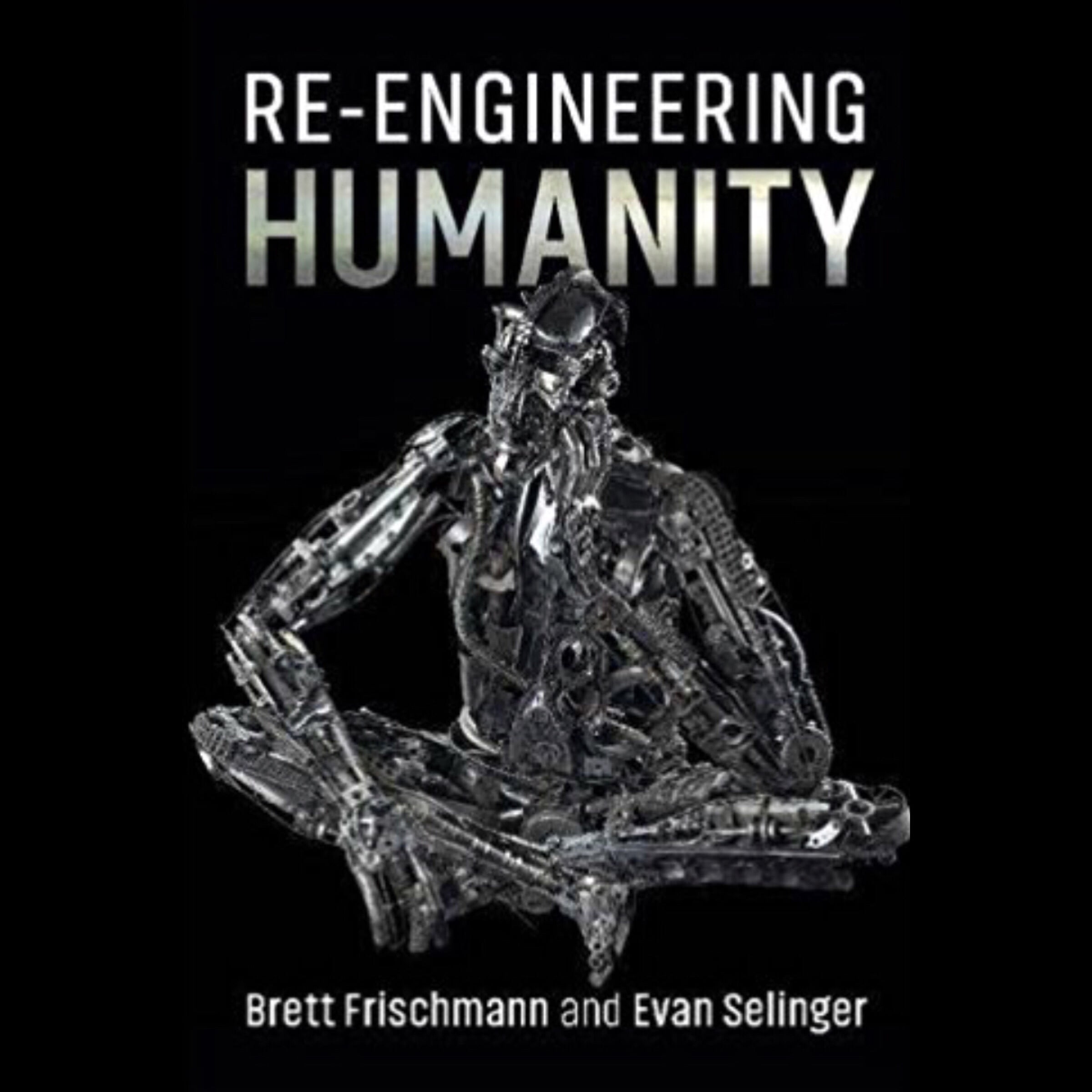Everyday new warnings emerge about artificial intelligence rebelling against us. All the while, a more immediate dilemma flies under the radar. Have forces been unleashed that are thrusting humanity down an ill-advised path, one that’s increasingly making us behave like simple machines?
Have a look at the book’s website.
About the Authors
Brett Frischmann is The Charles Widger Endowed University Professor in Law, Business and Economics at Villanova University. He is also an affiliated scholar of the Center for Internet and Society at Stanford Law School, and a trustee for the Nexa Center for Internet & Society, Politecnico di Torino. He has published foundational books on the relationships between infrastructural resources, governance, commons, and spillovers.
Evan Selinger is Professor of Philosophy at the Rochester Institute of Technology, where he is also the Head of Research Communications, Community, and Ethics at the Center for Media, Arts, Games, Interaction, and Creativity. A Senior Fellow at the Future of Privacy Forum, his primary research is on the ethical and privacy dimensions of emerging technology. Selinger is a prolific writer and his next anthology is The Cambridge Handbook of Consumer Privacy, co- edited with JulesPolontesky and OmerTene (Cambridge University Press, forthcoming 2018). A strong advocate of public philosophy, he regularly writes for magazines, newspapers, and blogs, including The Guardian, The Atlantic, Slate, and Wired.
Advance Praise Re-Engineering Humanity
Frischmann and Selinger provide a thoroughgoing and balanced examination of the tradeoffs inherent in offloading tasks and decisions to computers. By illuminating these often intricate and hidden tradeoffs, and providing a practical framework for assessing and negotiating them, the authors give us the power to make wiser choices.
Nicolas Carr, author of The Glass Cage: How Our Computers Are Changing Us, from the Foreword
Re-Engineering Humanity brings a pragmatic if somewhat dystopic perspective to the technological phenomena of our age. Humans are learning machines and we learn from our experiences. This book made me ask myself whether the experiences we are providing to our societies are in fact beneficial in the long run.
Vint Cerf, Co-Inventor of the Internet
Frischmann and Selinger deftly and convincingly show why we should be less scared of robots than of becoming more robotic, ourselves. This book will convince you why it’s so important we embed technologies with human values before they embed us with their own. Douglas Rushkoff, author of Present Shock, Program or Be Programmed, and Throwing Rocks at the Google Bus.
Everybody is suddenly worried about technology. Will social media be the end of democracy? Is automation going to eliminate jobs? Will artificial intelligence make people obsolete? Brett Frischmann and Evan Selinger boldly propose that the problem isn’t the rise of ‘smart’ machines but the dumbing down of humanity. This refreshingly philosophical book asks what’s lost when we outsource our decision-making to algorithmic systems we don’t own and barely understand. Better yet, it proposes conceptual and practical ways to reclaim our autonomy and dignity in the face of new forms of computational control.
Astra Taylor, author of The People’s Platform: Taking Back Power and Control in the Digital Age
A magnificent achievement. Writing in the tradition of Neil Postman, Jacque Ellul and Marshall McLuhan, this book is the decade’s deepest and most powerful portrayal of the challenges to freedom created by our full embrace of comprehensive techno-social engineering. A rewarding and stimulating book that merits repeated readings and may also cause you to reconsider how you live life.
Tim Wu, Isidor and Seville Sulzbacher Professor of Law, Columbia Law School, and author of The Attention Merchants
About Cambridge University Press
Cambridge University Press dates from 1534 and is part of the University of Cambridge. We further the University’s mission by disseminating knowledge in the pursuit of education, learning and research at the highest international levels of excellence. Playing a leading role in today’s global marketplace, we have over 50 offices around the globe, and we distribute our products to nearly every country in the world. We publish titles written by authors in over 100 different countries.






